Prime Minister Joseph Muscat said that the European leaders' meeting in Brussels "was better than expected. There was some progress. We all spoke our minds in a very clear manner.
"I do hope that it has served the purpose to make us understand the situation better before the EU summit next week. I am totally against going again in the direction of high-level declarations. What we need is operational action. There are people at sea right now. If we do not take decisions in the coming days the situation will escalate.
"What we converged on today is a signal that there is a willingness to go for some operational changes, Muscat said at the end of the summit.
A number of EU countries, including Malta, are meeting in Brussels after the latest migration standoff between Malta and Italy, this time involving the Search and Rescue ship Lifeline, which has some 230 rescued migrants onboard.
Speaking to the press before the start of the summit, Muscat said: “We are coming to this meeting with an open mind. We hope that everyone around the table adopts the same attitude. The situation is precarious and we are witnessing it first hand in the Mediterranean. I do not think this is a time for finger pointing. Our people are looking at us to find solutions. It is not about a blame game. It’s not about running around the room with the usual stuff. We need to come up with concrete solutions. We will make some proposals with the hope that everyone will be willing to listen.”
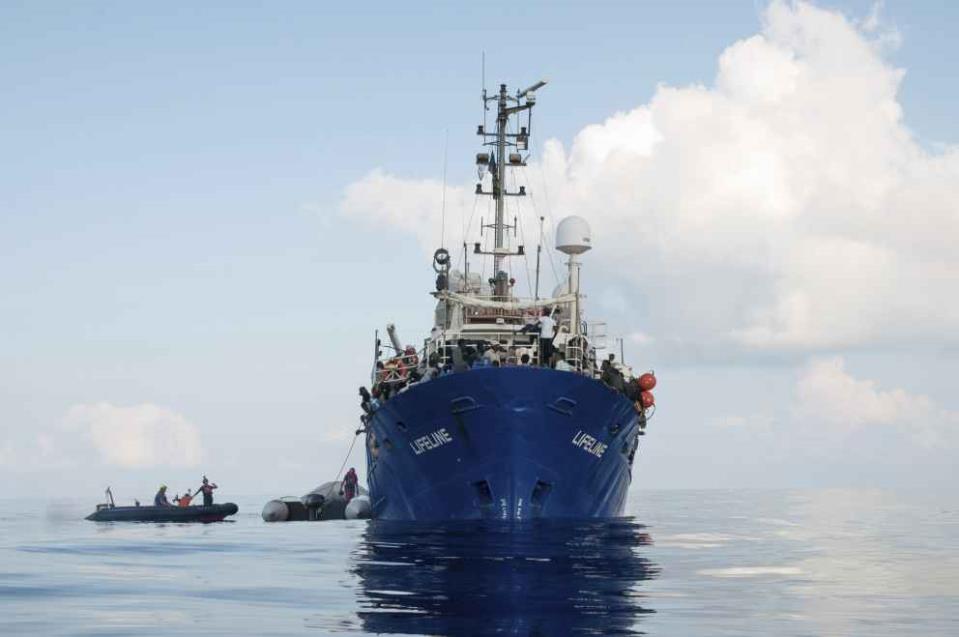
Facing a domestic political crisis in Germany over the topic, Chancellor Angela Merkel will be seeking to get EU leaders to forge a joint approach to manage the influx of migrants and refugees, a divisive issue which is now back at the heart of the EU too.
There are deep divisions over who should take responsibility for arriving migrants, how long they should be required to accommodate them, and what should be done to help those EU countries hardest hit like Italy and Greece.
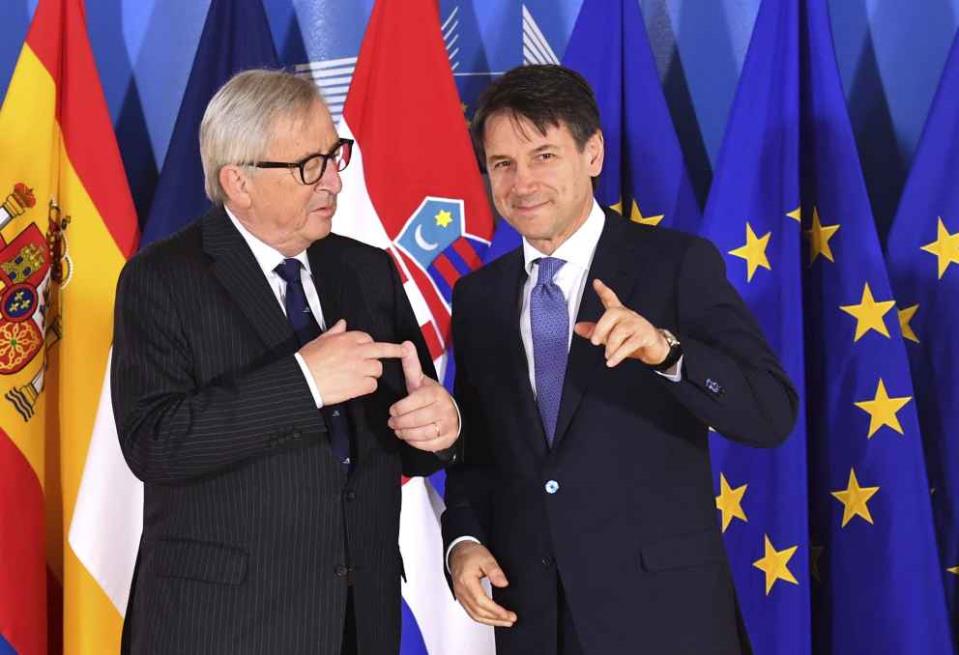
"It's time for Europe to find itself again in the principles that everyone preaches, but few sincerely practice," the party said, adding "the future of Europe as a political community" is at stake.
Looking for common ground among a few key nations, the informal mini-summit now involves about 16 member states, as others demanded to take part.
And to further complicate matters, four eastern EU countries — the Czech Republic, Hungary, Poland and Slovakia — refused to attend and reject taking in migrants in general. It means that whatever is agreed upon Sunday, it would still face a full test when the full two-day EU summit starts Thursday.

Two issues have brought the crisis back to haunt the leaders: In Germany, Christian Democrat coalition partners CDU and CSU are haggling over the right approach in what is seen as one of the toughest challenges Merkel has faced in her entire political career.
In Italy, the new populist government caused a fight with Malta and France over who should take responsibility for 630 people rescued from the Mediterranean Sea off the coast of Libya, the main departure point for people trying to reach Europe. Amid the mud-slinging, Spain's new Socialist government agreed to take charge of the migrants last weekend.
On Saturday, Spain also announced it had rescued 569 more migrants at sea, many from boats in the Strait of Gibraltar, a busy shipping lane with treacherous currents.
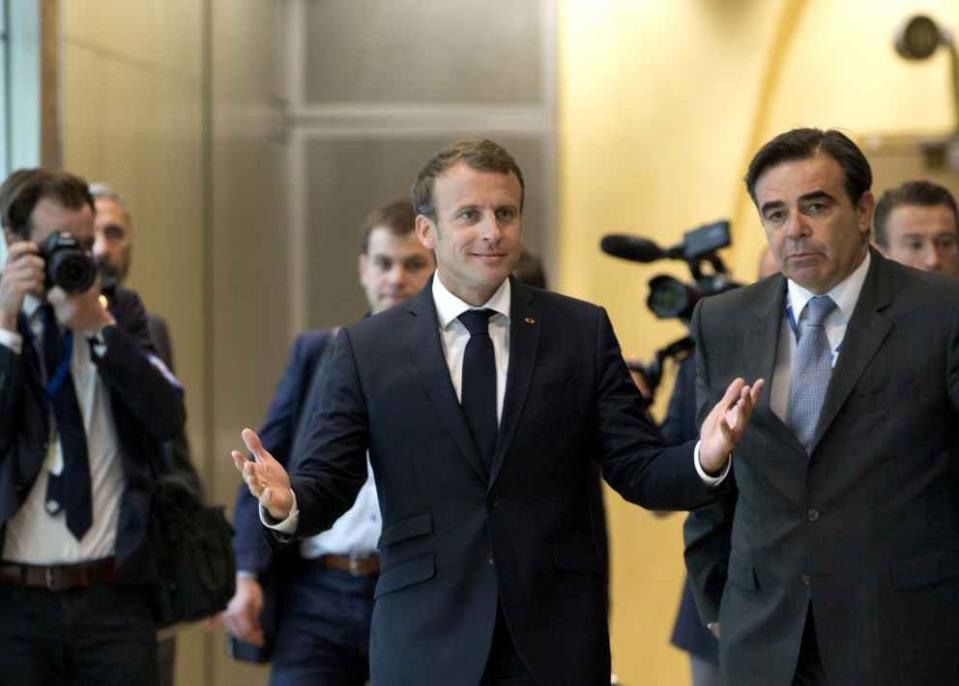
But Italy and Malta were at it again Saturday, refusing to let a German rescue ship with 234 migrants dock. The German aid group said a cargo vessel, the Alexander Maersk, had another 113 migrants and was also waiting for a port to receive them.
One of the key accomplishments of the EU is the Schengen free travel zone and some fear that closing internal borders between EU nations to keep migrants out would undermine that cornerstone of EU cooperation.
"We want to have real controls at the external borders to make sure we can safeguard the free travel zone of Schengen," said Belgian Prime Minister Charles Michel.
Live updates
7:40 p.m.
Spanish Prime Minister Pedro Sanchez says emergency talks European leaders held on migration didn't yield any decisions but that the participants agreed they need to work together on the politically fraught issue.
Sanchez told reporters that Sunday's meeting involving the heads of at least 16 EU countries were "frank and open," but "we don't have any concrete consequences or conclusions."
He says: "Everyone agreed on the need to have a European vision; a common position on a common challenge."
As the meeting got started, several countries threw their weight behind the idea of setting up migrant reception centers in Africa to screen asylum-seekers before they depart for Europe.
7:20 p.m.
German Chancellor Angela Merkel says a summit of 16 European Union countries has created "a lot of goodwill" to discuss EU disagreements on migration.
Merkel and 15 other European leaders met in Brussels on Sunday to tackle the immigration policies that have divided the bloc since more than 1 million migrants arrived in 2015.
The German chancellor said the summit participants agreed that Europe's outer borders need to be better protected to keep people from entering illegally and that "all countries should share all the burdens" related to migration.
Merkel says the countries that most migrants reach first shouldn't be left alone to deal with the influx and that it also shouldn't be up to newcomers to decide in which European country they get to apply for asylum.
5:50 p.m.
Italy's coast guard is responding a Spanish aid group's criticism of having its offer to help rescue some 1,000 migrants from the Mediterranean Sea declined, saying the responsibility for coordinating the rescue has been handed off to Libya.
Italian coast guard officials said they received distress calls from six different migrant boats Sunday that were in Libya's search-and-rescue territory. The Italians said they alerted ships in the area and formally advised the Libyan coast guard, which officially took over the rescue.
Spanish NGO Proactiva Open Arms complained that Italy's coast guard declined its offer of help.
Italy's hard-line new government has refused to let aid groups' rescue ships dock, arguing that they are serving as taxi services for Libyan-based human traffickers. Italy has also sought to bolster the Libyan coast guard's patrol capacity, but human rights organizations say Libya isn't a safe place for migrants.
5:15 p.m.
The Italian government's proposal for revamping how Europe manages migration calls for creating "international protection centers" that would screen asylum requests in common countries of transit.
The 10-point plan Premier Giuseppe Conte presented at an emergency meeting in Brussels on Sunday also seeks more European Union support to help the Libyan coast guard better patrol its coasts for departing migrant boats.
The plan argues that existing European asylum rules are obsolete and "paradoxical." The regulation effectively means migrants can only apply for asylum in the European country where they first arrive, usually Italy or Greece.
The Italian proposal says other European countries must create welcome centers for asylum-seekers so the burden is dispersed.
It also calls for EU investment in migrants' home countries, presumably as a way to persuade them to stay.
4:45 p.m.
Italy's firebrand interior minister is defending Italy's decision to ask the Libyan coast guard to rescue an estimated 1,000 migrants without the help of aid groups.
Matteo Salvini was responding to the alarm raised by Spanish aid group Proactiva Open Arms, which said Italian coast guard authorities had declined their offer to come to the migrants' rescue.
In a tweet Sunday, Salvini said: "It's right that the Libyan authorities intervene, as they've been doing for days, without having the NGOs interrupt them and disturb them."
Barcelona Mayor Ada Colao, who previously offered Barcelona as a port when Italy refused entry to another aid group's rescue ship, repeated her willingness to take in the migrants and urged Prime Minister Pedro Sanchez to intervene to allow Proactiva's ship to "save lives."
She said: "Italy wants to leave the migrants in the hands of Libya, where they torture, rape and enslave" migrants.
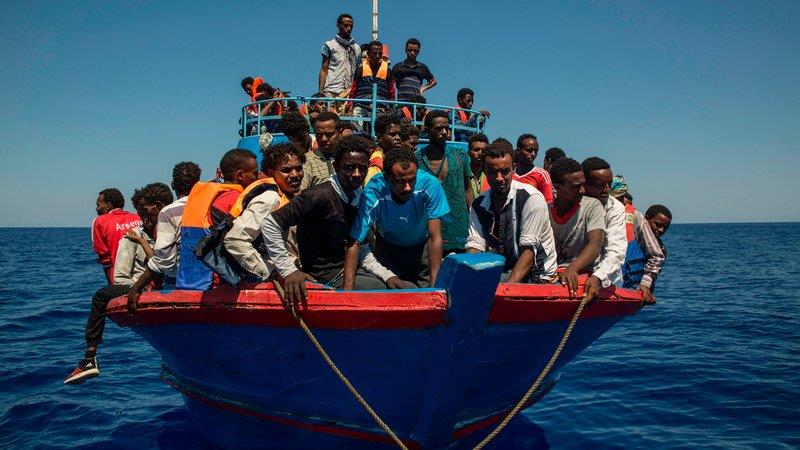
4:35 p.m.
Spanish Prime Minister Pedro Sanchez is urging his European Union partners to help Spain deal with the arrival of thousands of migrants from Africa across the Mediterranean Sea.
Sanchez said Sunday that he will request "the support of our comrades, of our state members, in order to control better the flow that we are suffering nowadays from the western Mediterranean."
Spain has seen a sharp rise in migrant arrivals. The U.N.'s refugee agency says around 40,000 people have arrived in Europe by sea so far this year, some 16,000 in Italy, 12,000 in Greece and 12,000 in Spain.
4:10 p.m.
French President Emmanuel Macron is saying that any solution to immigration should be based on the human rights and solidarity principles that the European Union stands for.
Speaking as he came into the EU's informal mini-summit Sunday on migration, Macron said if no deal could be found among all 28 EU nations, a smaller group of them could push ahead to deal with the issue. Migration across the Mediterranean Sea is down sharply from last year but it is dominating Europe's political agenda.
As such, he echoed German Chancellor Angela Merkel, who was also calling for bi- and trilateral agreements among member states to make progress now.
The core of any agreement though, he said, must be the steadfast respect of human rights.
"The values of Europe are the respect for human rights and individuals, the respect for nations and their integrity. It is the solidiarty that holds us together," he said.
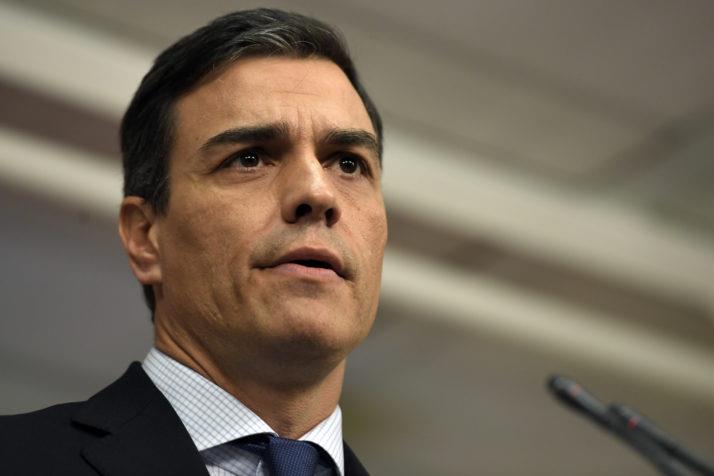
3:50 p.m.
Spanish Prime Minister Pedro Sanchez has accused Italy's new populist government of being "anti-European" in its immigration policies by putting national self-interests ahead of efforts to forge a united front in the European Union.
But he also notes that other EU countries have failed to help Italy cope with the arrivals of large numbers of migrants across the Mediterranean Sea.
Sanchez tells the El Pais newspaper the EU's biggest challenge at the moment is "europhobia," as some EU members shrink from agreeing on common policies.
His comments come as EU leaders gather in Brussels to discuss a more unified approach to migration.
Spain's new center-left government is taking a more open stance on migration, including extending public health care to undocumented foreigners.
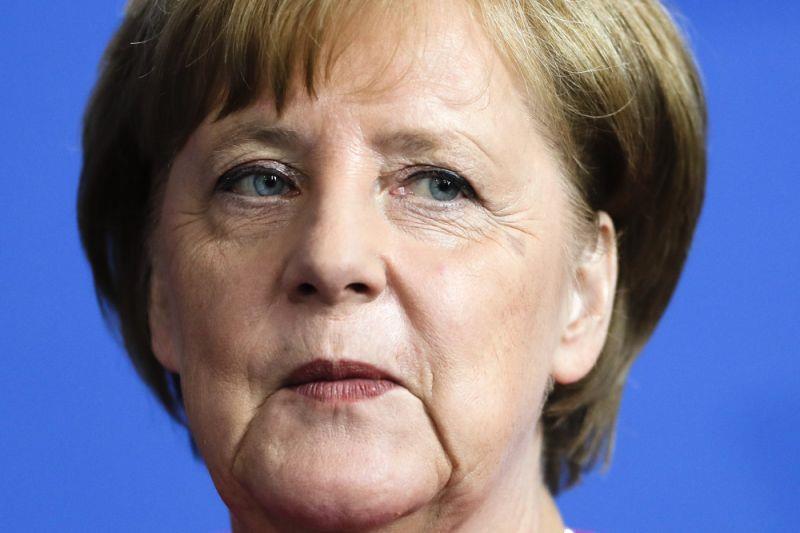
3:45 p.m.
German Chancellor Angela Merkel is downplaying expectations that the EU summit next Thursday will be able to come to a full agreement on how to deal with migration.
Merkel instead is pushing for bilateral and trilateral deals to cope with the immediate emergencies with migrants coming into Europe.
Merkel, speaking as she entered Sunday's mini-summit of 16 of 28 EU nations in Brussels, says EU nations have to see "how can we help each other without always having to wait for all 28, but by thinking what's important to whom."
Instead of difficult overall deals among all member states, she says "it is also about bi and trilateral agreements for mutual benefit."
3:35 p.m.
Italy is presenting what it says is a radical new proposal for Europe to handle migration that it says should replace the existing regulation that determines how asylum claims are handled.
Premier Giuseppe Conte is unveiling his strategy for migration at a meeting Sunday in Brussels with 15 other EU countries. He said the plan represents a "paradigm change" in the divisive issue.
Without giving details, Conte said the Italian plan is "efficient and sustainable." He said it would replace the Dublin regulation on asylum — that migrants must ask for asylum in the EU nation where they land — which he said was negotiated as an emergency solution.
He said the Italian plan seeks to "confront the problem in a structural way."
Conte has previously said the Italian proposal calls for creating "hotspots" in the most common homelands for migrants and in transit nations to identify asylum candidates.
3:25 p.m.
A Spanish aid group that has rescued thousands of migrants in the Mediterranean Sea says there are seven boats with about 1,000 migrants aboard in need of rescue off Libya's coast, but that Italy has declined its offer of help.
Proactiva Open Arms says in a tweet Sunday that Italian coast guard authorities who coordinate rescues sent out advisories to all ships in the area but told Proactiva: "We don't need your help."
Proactiva says Italy is seeking to have the Libyan coast guard conduct the rescues and bring the migrants back to North Africa.
Under its new anti-migrant government, Italy has refused to let aid groups dock in Italian ports, arguing they are encouraging smugglers. Up until Sunday, Italy's rescue coordination center had still engaged with the groups at sea during actual rescues.
There was no answer Sunday at the Italian coast guard.
2:45 p.m.
Italy's populist 5-Star Movement is demanding that European countries step up and actually take action to deal with hundreds of thousands of migrants on the continent, warning that the future of Europe is at stake.
The 5-Stars, who are in a ruling coalition with the anti-migrant League party, penned a blog Sunday titled "The migrant hypocrisy sinks Europe" as EU leaders met in Brussels on migration.
The post complained that few countries even came close to accepting the redistributed migrants they pledged to under a failed 2015 EU plan to ease the burden on Italy and Greece.
The post said: "It's time for Europe to find itself again in the principles that everyone preaches, but few sincerely practice," saying what is at stake is "the future of Europe as a political community and its values."